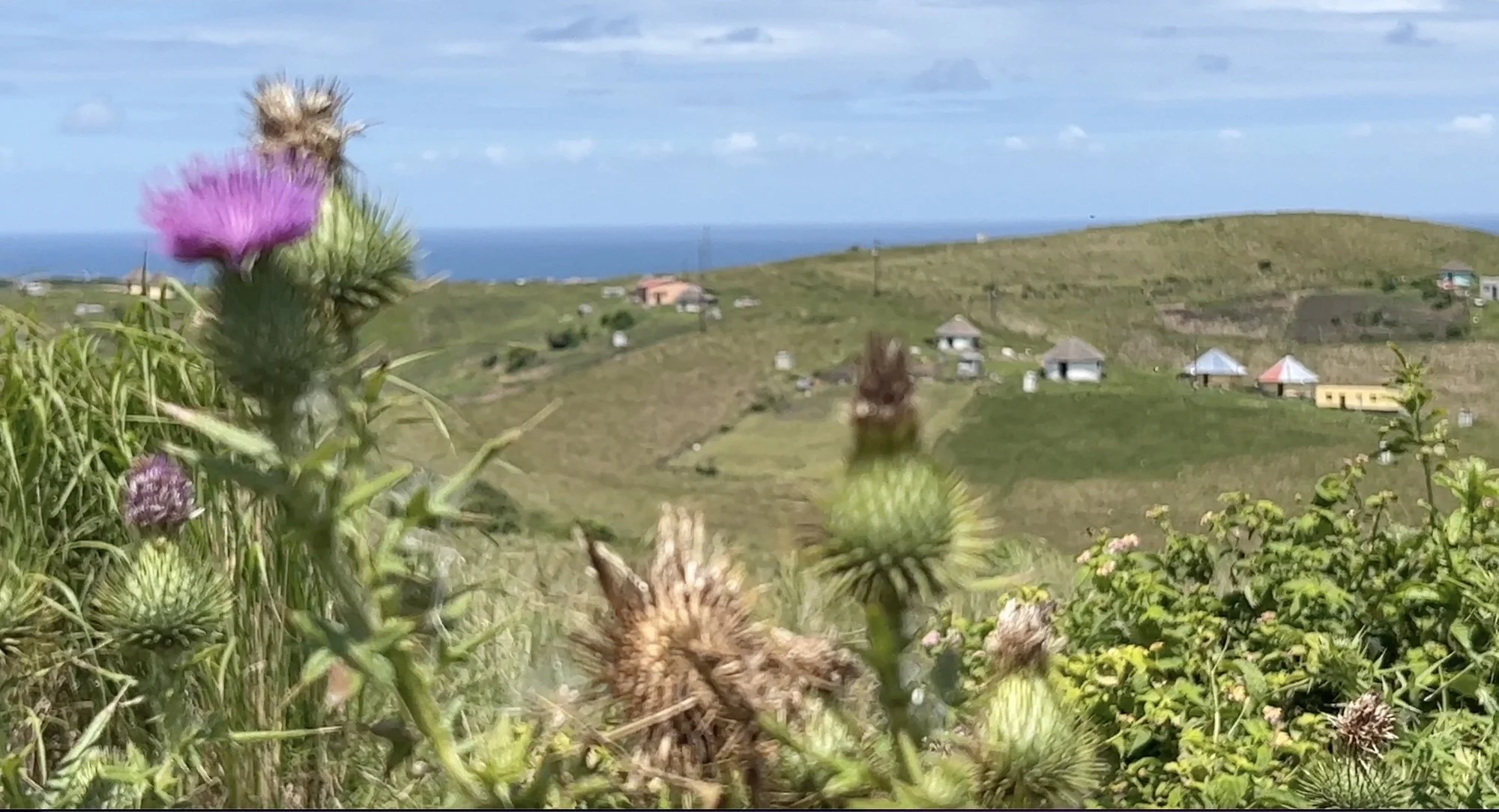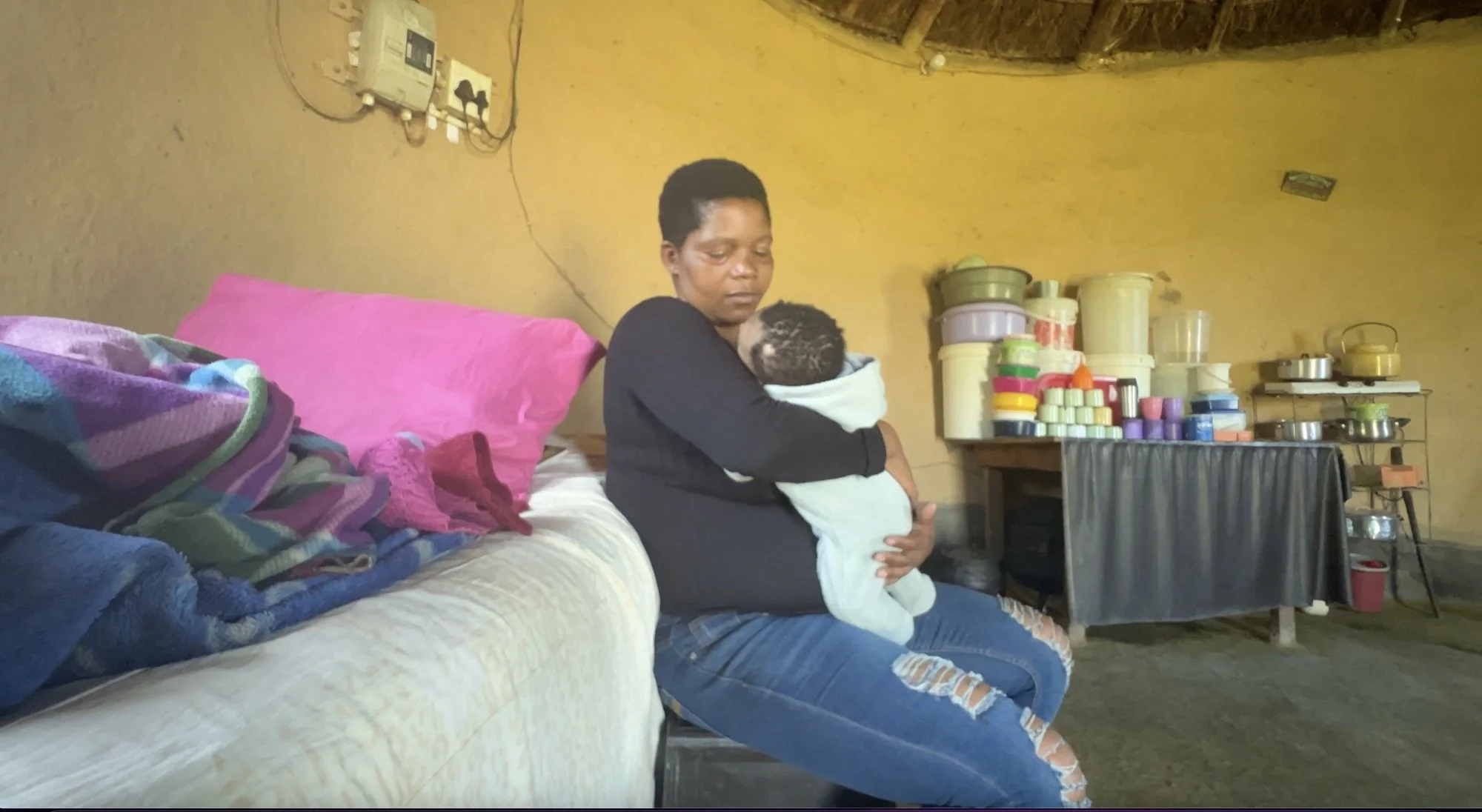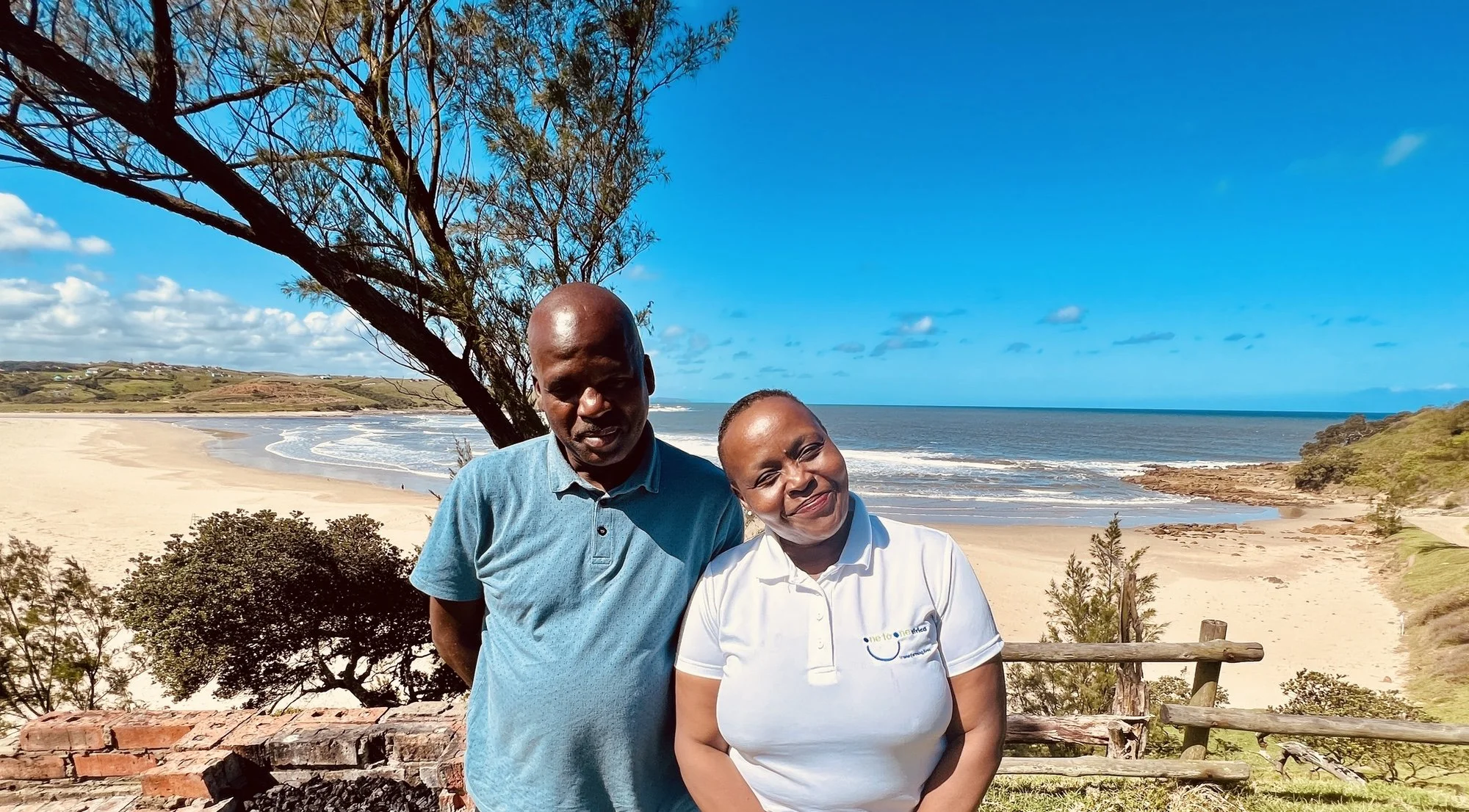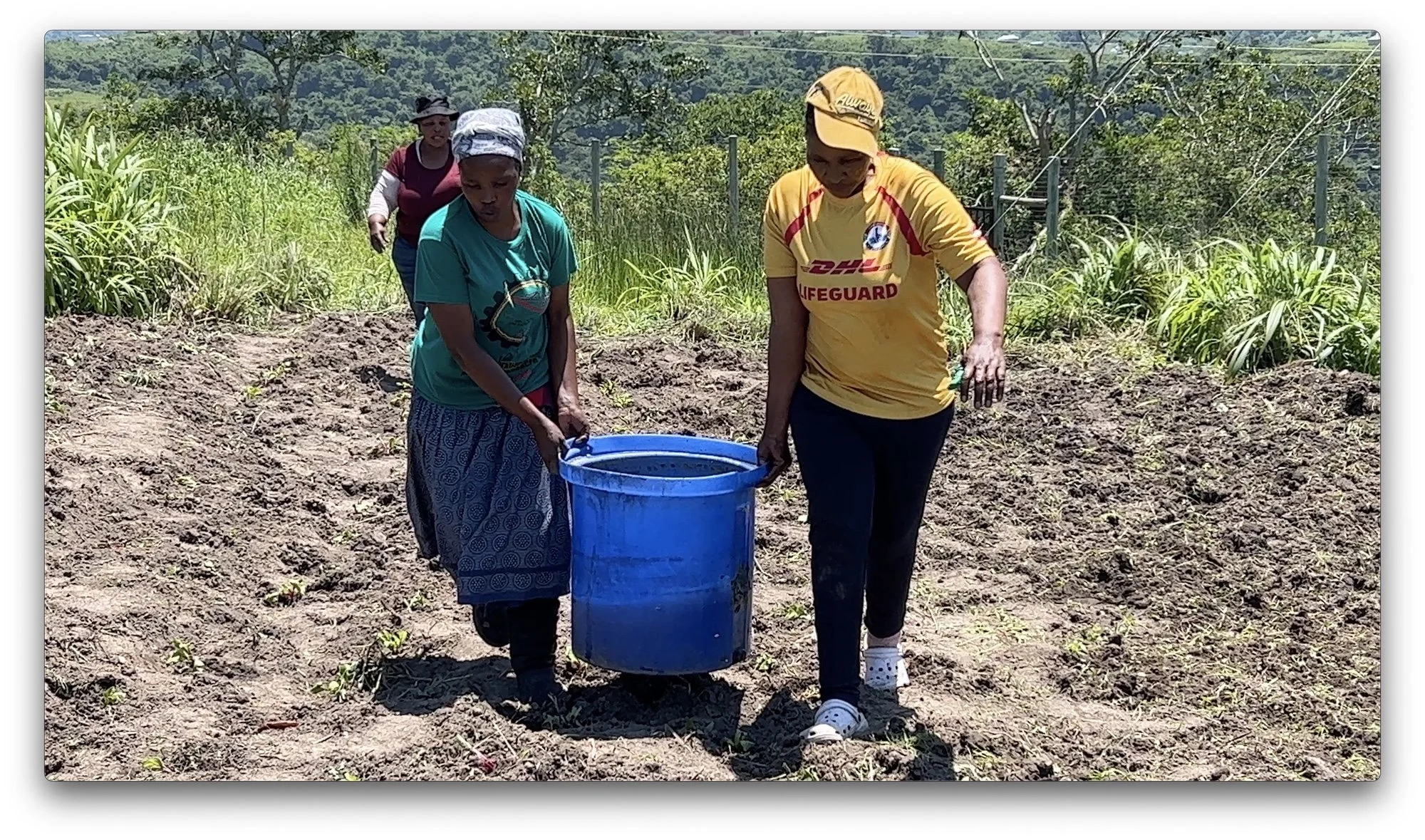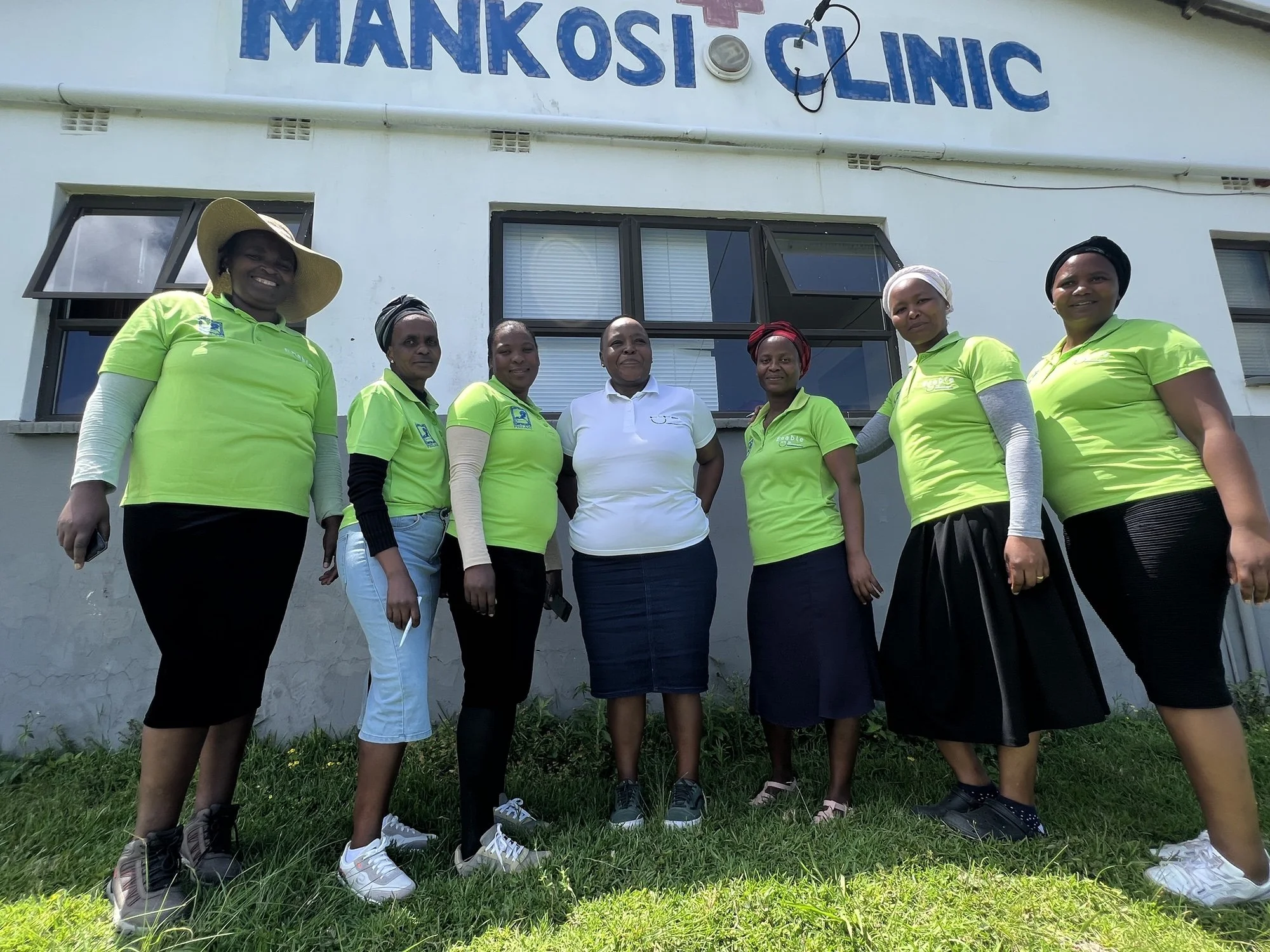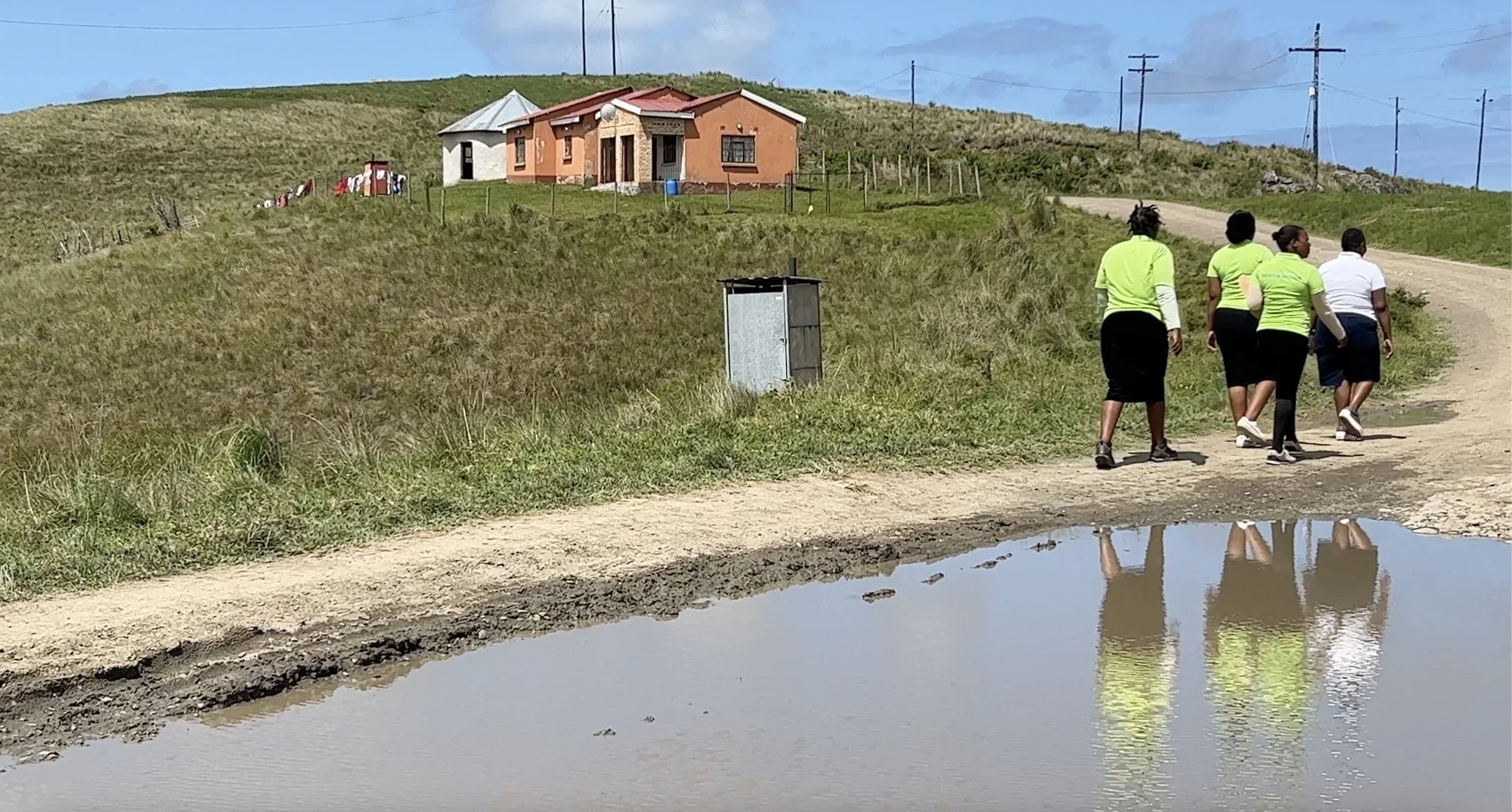By Hazel Friedman, award-winning journalist
Perched atop a hill overlooking a seemingly endless paradisal vista, in the rural Eastern Cape village of Tshani, is the Mankosi Clinic. From a distance, the building resembles a land-based lighthouse – a beacon of healing and hope for the rural villages surrounding it. Built and paid for by the Mankosi community in 2010, it was meant to provide a convenient treatment facility for households that would usually be forced to travel hours to access healthcare, from pregnancies and acute conditions to chronic diseases such as high blood pressure, diabetes and HIV-Aids.
The Mankosi Clinic overlooks a paradisal vista
Mankosi Clinic serves as the Eastern Cape field office of the One To One Africa Children’s Fund. Since its global inception in 2001, One To One’s pioneering accomplishments have included spearheading the distribution of anti-retroviral treatment to HIV-positive mothers and children. Today, One To One’s methodology of distribution has become a model for the South African government, with HIV transmission rates from mother to child reduced to 0.03%.
But the challenges facing communities living in remote rural areas are immense. Accessing rudimentary services, let alone essential HIV treatment, remains a constant struggle for scores of far-flung villages comprising the Nyandeni municipality, which falls under the OR Tambo Municipality. The most remote of these areas are called Last Mile communities, because they are located furthest from the tar roads that provide access to basic infrastructure. Beyond their frontiers is nothing but wilderness
It is here, in 36 villages, stretching from the coastal hamlet of Coffee Bay to the vast, intractable mountains framing Lusikisiki, that One To One has gone more than the extra mile by developing its pioneering Enable Programme. Established in 2016, the principal component of Enable is the Mentor Mothers Programme –a ground-breaking initiative that trains local women as community healthcare providers. On a daily basis, these intrepid heroines traverse where few - if any - NGOs tread: visiting hundreds of households on foot, walking for hours along dust-drenched or mud-soaked gravel paths to ensure the needs of mothers, children and families are met. Their home-care services stretch from monitoring nutrition and arranging essential documentation to assist with social grants – around 90% of these rural communities are unemployed - to immunisation and detection of early pregnancies. Most importantly, the One To One Mentor Mothers provide essential education, support and access to HIV treatment in an environment where 24% of mothers are HIV-positive,
The Enable Programme provides effective support for vulnerable mothers and children
“It is impossible to imagine the daily challenges faced by the communities we serve – let alone those mothers and children who are living with HIV, explains Thandie Matikinca, who is the One To One Programme Manager in the Eastern Cape. “Through their daily support, follow-up home-care, education on HIV prevention and treatment, the One To One Mentor Mothers provide essential services for families who do not have access to even the most basic services.”
A veteran in South Africa’s NGO sector, in January 2022 Thandie joined One To One’s Eastern Cape office, together with her husband Khaya. Their combined experience – he too has extensive experience in HIV-awareness and treatment programmes – have produced a formidable partnership that benefits both women and men.
Thandie adds: “One To One has provided an incredible opportunity for both of us to serve together these rural communities. The Enable Programme also provides an empathetic ear, listening to te communities, in order to better understand the needs of women, men and children. As such, we are bridging the gap between a reactive and a proactive response to community healthcare.”
One To One Husband and wife team, Khaya & Thandie Matikinca
For example, there are no ambulances that service the Mankosi area, where the One To One office is located. The Pilani Clinic is 7 km along the winding gravel road. It can take up to three hours to walk there, and the closest hospital, Canzibe, is roughly 30 km away. The only public transport residents have to these facilities is a bus that leaves at 5am, bakkies doubling as taxis, that operate only twice a day, or private vehicles that demand exorbitant rates to make the gruelling trip.
In addition to organising often life-saving transport, One To One has also arranged for the Eastern Cape Health Department to deploy a mobile clinic to the Mankosi Clinic in Tshani Villag, on a weekly basis Every Monday, the community-built edifice overflows with the young, elderly and infirm. But the rest of the week, it stands empty and in a state of disrepair. Ironically, given the fact that there is water everywhere – in the rivers, estuaries and, theoretically, in the rudimentary taps servicing the community – there is not a drop to drink.
“The taps have been dry for two years,” says Thandie. “Women – many of whom are ill and have children – must walk long distances to the rivers to collect polluted water.”
She adds: “We have a good relationship with the Health Department , the local chief and the ward councillor. We are therefore confident the water shortage will be addressed, given the challenges women face with HIV-AIDS and the need to boost their immune systems.”
Rural women are forced to collect polluted river water for their daily needs
In addition to maintaining most rural households, women continue to bear a disproportionate burden of the HIV epidemic. This is partly the consequence of the Covid-19 pandemic, which prioritised treatment of the virus over maintaining therapy for chronic diseases. The pandemic also placed inordinate social and economic strains on households, further exacerbating unemployment and gender-based violence. The Enable Programme plays a crucial role in addressing these realities, including dispelling the stigma that still surrounds HIV.
“We have formed support groups among all ages, where we encourage members to disclose their status, without fear of discrimination,’ says Funeka Menze – a Mentor Mother, who is living openly with HIV. She was diagnosed in 2003 – during an era of AIDS denialism. At the time, apart from pioneering initiatives by NGOs such as One To One, antiretroviral treatment was taboo at public health facilities. “Back then, I was ostracised by my community and made to feel that HIV was a death sentence,” she recalls. “Joining One To One as a Mentor Mother has enabled me to give the necessary education to others living with HIV, not only to disclose their status but to adhere to treatment.”
In the Mankosi area alone, which is home to over 2000 people, along with the other Mentor Mothers, Funeka services 250 households. Like them, not only does she provide essential home-based healthcare but, if necessary, also collects their medication from the nearest clinic.
“We play an important role in educating women, particularly teenagers, telling them if they feel there is something wrong with their bodies, they must speak out., “emphasises Nolubabalo Tshemese, who is the Mentor Mother supervisor at Mankosi. “Teenage pregnancies are a big problem and young women are more likely than men to be HIV-positive. This puts them and their children at greater risk.” She adds: “Information, support and access are the answer to these challenges.”
Mentor Mothers at One To One's Field Office
In the build-up to the 2022 World AIDS Day, a South African conglomeration of HIV-focused organisations, called Ritshidze, compiled a report that provides a mixed diagnosis for HIV-survivors in the Eastern Cape – South Africa’s poorest province. The report concludes that while HIV-awareness has improved, the ongoing crisis in the province’s chronically short-staffed, overburdened and under-capacitated healthcare system presents a danger to people living with HIV
“We are available on the ground, all day every day” says Mentor Mother, Nokwanda Luphondo. “We are inspired because we are saving lives.”
This makes the work of One To One all the more essential in HIV care. Through its Enable Mentor Mothers Programme, families living with HIV along the last mile, are being sustained and empowered, one step at a time. Providing a continuum of care for the most vulnerable rural communities, this grassroots model deserves be emulated, not only throughout the Eastern Cape, but the rest of South Africa, as well.
Mentor Mothers provide a continuum of care for 36 villages


